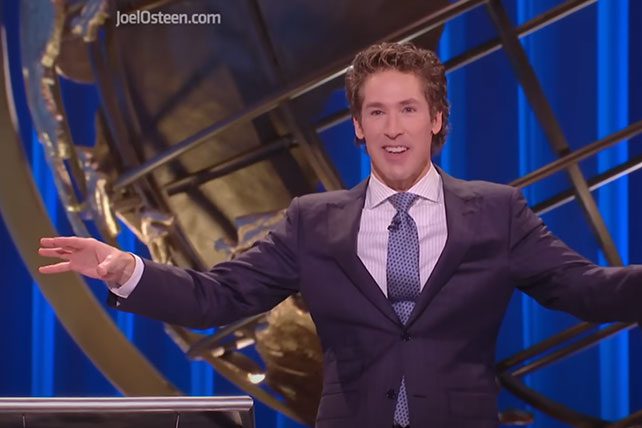A secular writer has taken on a question many in the church world have been trying to answer for a while now. Writing for the Financial Times, Edward Luce tackles the continued appeal of the prosperity gospel, what its teachers (like Joel Osteen) believe, and how it’s so far off from orthodox Christianity. Dr. Albert Mohler feels Luce’s article, “A preacher for Trump’s America: Joel Osteen and the prosperity gospel,” hits the nail on the head.
“The secular reporter for the Financial Times seems to have a stronger grasp on the teachings of orthodox Christianity than Osteen,” said Dr. Mohler, who is the president of the Southern Baptist Theological Seminary.
What Does Joel Osteen Believe?
Osteen’s critics often accuse him of preaching the prosperity gospel, which could be described as “a pragmatic spirituality that correlates circumstantial blessings or curses with human strength, achievement or even faith.” Put another way, “God wants believers to be physically healthy, materially wealthy and personally happy.” By focusing on comfort and happiness, prosperity gospel preachers minimize the Christian concepts of sin, eternal judgment and suffering.
Luce says that about 20 percent of Americans attend a church that teaches the prosperity gospel, and this way of thinking was something he definitely encountered while attending a night class called “Quest for Authentic Manhood” at Lakewood, Osteen’s church in Houston, Texas. The leader of the men’s group told Luce, “If you want to feel bad, Lakewood is not the place for you. Most people want to leave church feeling better than when they went in.” More than one of the group’s attendees had a story about how once they started tithing money to Lakewood, God blessed them financially. One of the men said, “God works fast when you work for him.”
Luce also interviewed Osteen at one of his “Nights of Hope,” a “two-and-a-half-hour, all-singing-and-dancing show that he takes on the road every few weeks.” When Luce asked him why he didn’t talk about sin and redemption, Osteen responded, “Look, I am a preacher’s son so I’m an optimist. Life already makes us feel guilty every day. If you keep laying shame on people, they get turned off.” Luce’s assessment? Osteen is closer to Oprah than to Billy Graham.
Why Do People Buy Into the Prosperity Gospel?
One reason why Osteen’s message is appealing is that he and his church are extremely wealthy. As one of the men in the men’s group said, “We don’t want to follow a loser.” Another is that people are looking for hope in their lives, and the prosperity gospel offers the promise that life can be better. Lakewood has actually helped some people better their lives, such as one of the men in the group who turned his life around, stopping his self-destructive habits and saving his relationship.

